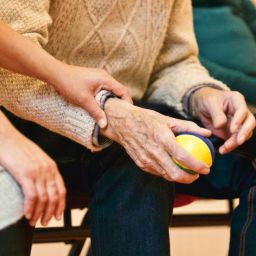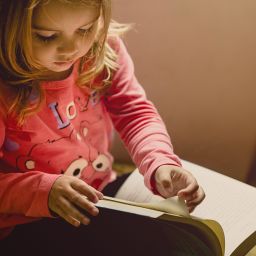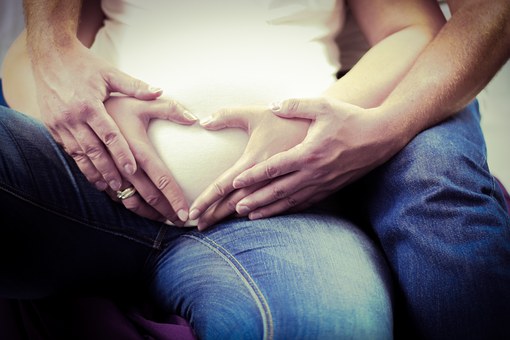 Bullying can be an insidious presence in many children’s lives, leaving more than just visible bruises. The scars often run deep, affecting not only the immediate emotional well-being but also the long-term development of a child. The Anti-Bullying Alliance define bullying as ‘The repetitive, intentional hurting of one person or group by another person or group, where the relationship involves an imbalance of power. Bullying can be physical, verbal or psychological. It can happen face-to-face or online’.
Bullying can be an insidious presence in many children’s lives, leaving more than just visible bruises. The scars often run deep, affecting not only the immediate emotional well-being but also the long-term development of a child. The Anti-Bullying Alliance define bullying as ‘The repetitive, intentional hurting of one person or group by another person or group, where the relationship involves an imbalance of power. Bullying can be physical, verbal or psychological. It can happen face-to-face or online’.
Understanding Bullying
Bullying was once thought of as a ‘rite of passage’ or simple schoolyard scraps that everyone experienced; however, we now understand that it’s an issue that divides schools, communities, and digital spaces. Defined by repeated acts of aggression, intentional harm, or power imbalance, bullying takes various forms—verbal, physical, social, or cyber—and inflicts deep wounds that aren’t always apparent.
The Devastating Impact
One of the most significant casualties of bullying is a child’s self-esteem. Constant harassment, ridicule, or exclusion corrodes the belief in oneself, fostering a sense of inadequacy and worthlessness. A child subjected to bullying often internalizes the negativity directed at them, leading to self-doubt, diminished confidence, and a distorted self-image.
Moreover, the trauma of bullying extends beyond the immediate distress. Studies reveal a substantial correlation between bullying victimization and mental health issues such as anxiety, depression, and even post-traumatic stress disorder (PTSD). These emotional scars can persist well into adulthood, shaping the individual’s perception of themselves and their abilities.
Self-Esteem: The Fragile Foundation
A child’s self-esteem is akin to the bedrock upon which their personal growth is built. It forms the basis of how they perceive themselves and interact with the world. Bullying, like an earthquake, shakes this foundation, leaving cracks that can impede healthy development.
Low self-esteem manifests in various ways. Children may withdraw socially, shying away from interactions to avoid further hurt. Academic performance might suffer, as the constant stress and emotional turmoil overshadow their ability to concentrate and learn. Additionally, some children might exhibit aggressive behavior themselves, adopting bullying tactics as a defense mechanism or a way to regain a sense of control.
Impact on Personal Development
The effects of bullying transcend the emotional realm and seep into a child’s overall development. It impedes the formation of healthy relationships, hindering social skills and trust-building. The fear of rejection or ridicule often discourages children from seeking help or support, fostering a sense of isolation and alienation.
Furthermore, bullying alters a child’s perception of authority figures and institutions. The lack of intervention or perceived indifference from adults can deepen the wounds, eroding trust in the systems meant to protect them. This erosion of trust may have profound implications on their willingness to seek help in the future.
Addressing Bullying
Combatting bullying requires a multifaceted approach involving not just schools but also parents, communities, and policymakers. Awareness campaigns and educational initiatives play a pivotal role in creating safe environments where bullying is not tolerated. Earlier this month National Bullying Awareness Week raised awareness of this issue throughout schools and communities in the UK. They believe that empowering children with coping mechanisms, resilience-building skills, and assertiveness training equips them to navigate these challenging situations.
Effective intervention strategies involve fostering empathy and promoting a culture of inclusivity and kindness. Encouraging bystander intervention and teaching children to stand up against bullying not only supports victims but also creates a collective responsibility to combat this pervasive issue.
Healing the Wounds
Support and intervention are paramount for healing the wounds inflicted by bullying. Creating safe spaces where children feel heard, supported, and validated is essential. Professional counseling and therapy provide a vital lifeline for children grappling with the aftermath of bullying, offering tools to rebuild self-esteem and cope with the emotional trauma.
So how do you support your child who has been the victim of bullying? They are often highly anxious and need emotional support. It’s important to validate the severity of the breech of trust and reassure them that there are safe spaces for them to exist.
One way of supporting your child who is experiencing significant anxiety or depression after being bullied is to reach out to a professional therapist. This can help them gain the support and skills that they need to successfully overcome their fears and learn coping skills.
Clinical hypnotherapy can be a successful way to deal with stress and anxiety, the National Council for Hypnotherapy (NCH) says that Hypnotherapy can help a child deal with the issues that they are facing helping a child move on with their school career, feeling calm and confident without the potential harmful side effects of medication.
During hypnotherapy sessions the therapist can help the student set goals for how they would like to feel, identify the root causes and work with the student to create strategies for getting them back to the schoolyard without feeling fear or anxiety.
Many of the nearly 4,000 trained, insured and registered hypnotherapists on the NCH therapist finder specialise in working with children and adolescents. You’re sure to find help close by.
Use the NCH directory to find a therapist near you.
Moreover, building resilience in children is pivotal. Emphasising their strengths, encouraging healthy relationships, and fostering a sense of belonging are instrumental in nurturing their self-worth and enabling them to withstand the challenges posed by bullying.
In conclusion, the impact of bullying on children’s self-esteem and personal development is far-reaching and profound. It’s imperative to recognise that the scars left by bullying aren’t always visible but are nonetheless deeply ingrained. By fostering a culture of empathy, support, and resilience, we can work towards creating a world where every child feels safe, valued, and empowered to thrive.















